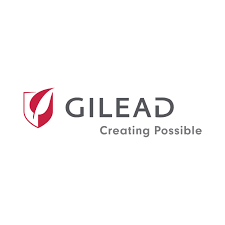FOSTER CITY, Calif.– Gilead Sciences, Inc. (Nasdaq: GILD) today announced findings from two studies, which provide further insights on the use of Veklury® (remdesivir) for the treatment of hospitalized and non-hospitalized patients with COVID-19. The first study is a retrospective observational analysis of the real-world treatment data from the Premier Healthcare Database consisting of 853,219 patients hospitalized with COVID-19 across the United States. This analysis found that more than 50% of hospitalized COVID-19 patients received Veklury, predominantly in combination with other therapies. An oral presentation of this real-world data analysis will be given on April 25 at 11 a.m. Western European Summer Time in Hall P at the European Congress of Clinical Microbiology & Infectious Diseases (ECCMID 2022). A separate study, which is a new post-hoc analysis of data from the Phase 3 PINETREE study, demonstrated that use of Veklury within five days of symptom onset or between 5 to 7 days of symptom onset reduced hospitalizations in patients at high risk for severe COVID-19 disease. This post-hoc analysis was presented as a poster (#L0447) at ECCMID.
The observational analysis of real-world data also found that as the pandemic progressed, initiation of Veklury within two days of hospitalization increased from 41% to 91% between May 2020 and December 2021. During this period, as new variants arose and disease severity fluctuated, median hospital length of stay (LOS) decreased from seven to six days with the greatest benefit in invasive mechanical ventilation/ ECMO patients (15 to 11 days). While ICU use decreased from 34% to 27%, with the greatest benefit in high-flow oxygen/non-invasive ventilation (66% to 52%), overall ICU LOS remained the same. Overall mortality rates remained stable at 16%, with the greatest decline over time in patients on low-flow supplemental oxygen (15% to 12%). These results confirm Veklury’s position as a foundational treatment for hospitalized patients with COVID-19 and signify the need to treat patients early before they become more severely ill with COVID-19.
“In a pandemic, real world analysis has a particularly important role in helping us understand how treatment choices are evolving over time as we work to discover the most effective treatment options for patients. We’ve long understood that antivirals work optimally for respiratory viruses when they are given as early as possible, without delay. This data confirms that antiviral treatment is now initiated sooner in hospitalizations and that throughout the pandemic, remdesivir has remained the foundation for hospitalized patients with COVID-19,” said Robert L. Gottlieb, MD, PhD, Baylor University Medical Center and Baylor Scott & White Research Institute. “Additionally, as healthcare providers’ experience and confidence in COVID-19 therapeutic options has increased, so too has the use of therapeutic combinations, reflecting the incremental incorporation of evidence-based therapies.”
The new post-hoc analysis from a Phase 3 double-blind, placebo-controlled trial (PINETREE) demonstrating that a three-day course of Veklury treatment significantly reduced the risk of hospitalization was also presented at ECCMID. The analysis assessed the variability of treatment effect with Veklury by time of symptom onset and number of baseline risk factors. The study concluded that Veklury reduced hospitalizations in patients at high risk for severe COVID-19 disease when initiated anytime within a 7-day window from symptom onset. As expected with antiviral therapy, the benefit was modestly greater the sooner Veklury was administered. Patients treated with Veklury within five days of symptom onset had a 90% reduced risk for hospitalization. Additionally, patients who received Veklury after five 5 days of symptom onset experienced an 81% reduction in risk of hospitalization. This new analysis builds on the previously presented primary endpoint analysis, in which Veklury demonstrated a statistically significant 87% reduction in risk for the composite primary endpoint of COVID-19 related hospitalization or all-cause death by Day 28 (0.7% [2/279]) compared with placebo (5.3% [15/283]) p=0.008); no deaths occurred in either arm of the study through the primary endpoint.
“The data presented at ECCMID, not only underscore Veklury as the antiviral standard of care for COVID-19 treatment in hospitalized patients, but they also further emphasize that patients can benefit from Veklury when it’s given up to seven days after the onset of symptoms and that the benefit is greater the sooner it is administered,” said Frank Duff, Senior Vice President, Virology Therapeutic Head, Gilead Sciences. “As the pandemic has progressed and the utility of other treatments against new variants has shifted, we are proud that Veklury has remained the foundation for patients hospitalized with COVID-19.”


